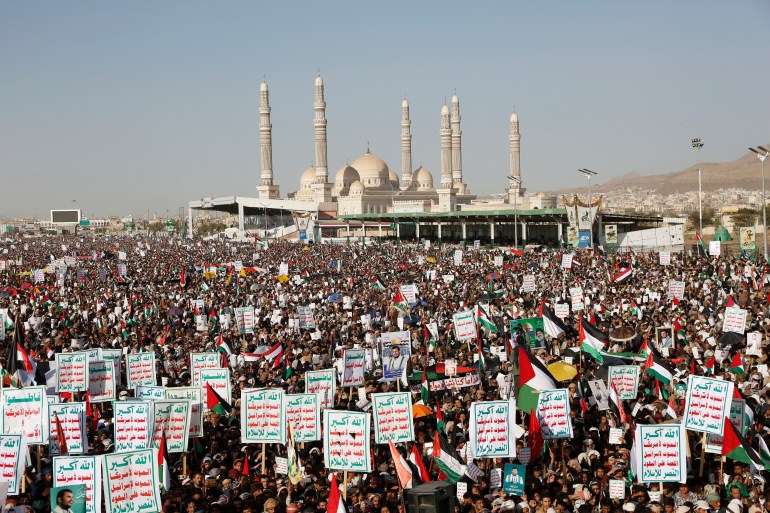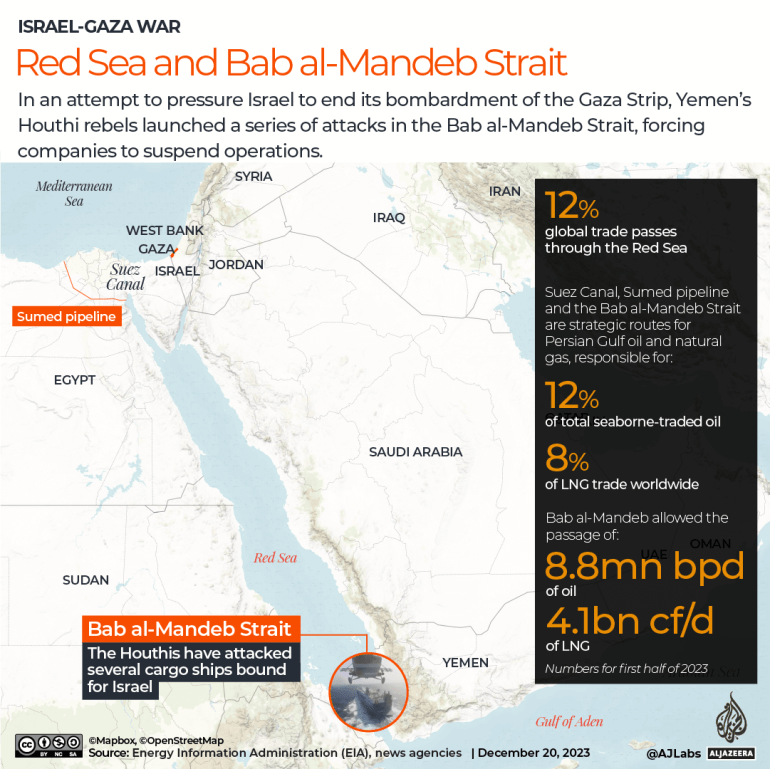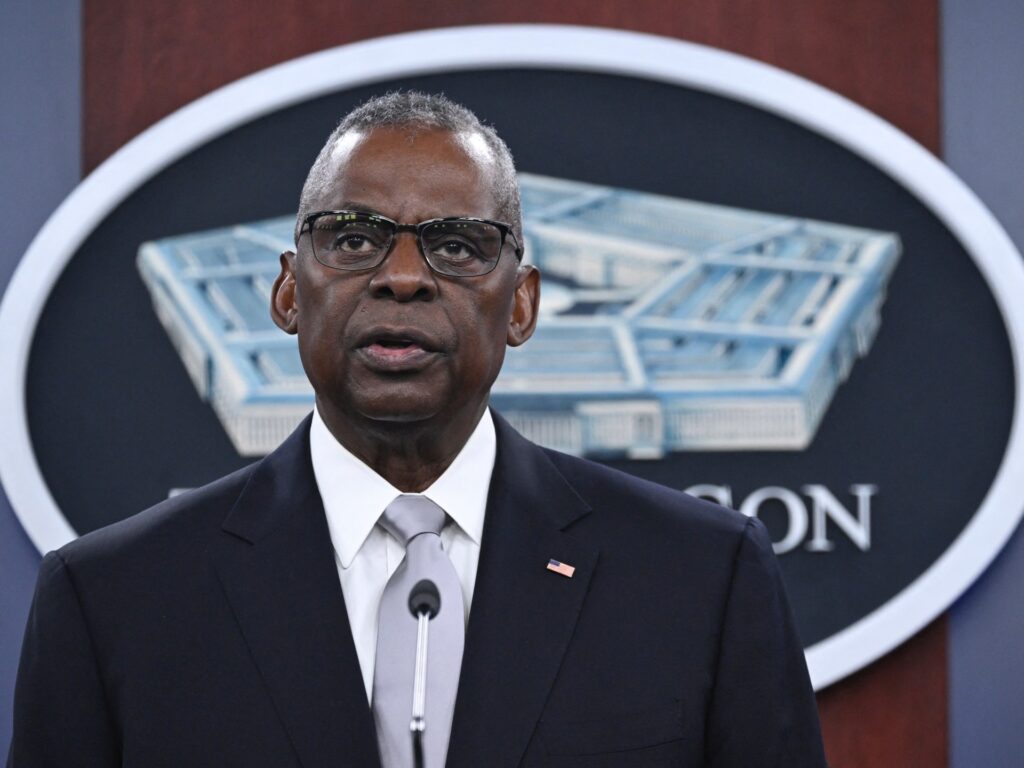The United States has approved plans for attacks in Iraq and Syria against multiple targets, including Iranian personnel and facilities, CBS News reported Thursday, citing U.S. officials.
President Joe Biden said Tuesday he has decided how to respond to last Sunday's drone strike in northeastern Jordan near the Syrian border that killed three U.S. service members and injured more than 40 others.
Sunday's attack marked the first loss of American life during the Israel-Hamas war.
Here's what we know about the U.S. plan.
Where will the US attack?
The United States plans to retaliate for the drone attack on the US Tower 22 base near the Syria-Jordan border by targeting Iranian personnel and facilities in both countries.
Iraq's Islamic Resistance Forces, believed to be made up of several groups armed, financed and trained by Iran's Revolutionary Guards, claimed responsibility for Sunday's attack on the base.
But on Wednesday, the force's most powerful faction, Kataib Hezbollah, announced a halt to hostile operations against U.S. forces. Iran itself denies involvement in the attack.
Nevertheless, the US plans to press ahead with its own attack over several days, according to US officials cited in the CBS report. Launch timing may be affected by weather conditions.
U.S. officials said, “Although the United States has the ability to carry out attacks in adverse weather conditions, the choice was made to prevent inadvertently attacking civilians who may wander into the area at the last moment.'' “We want to increase the visibility of the target,” he said.
Hawkish Republican officials in the United States have called for a direct attack on Iran, but the latest plan appears to avoid a direct attack on Iran.

What does the US Secretary of Defense say?
Secretary of Defense Lloyd Austin told reporters Thursday that the United States will not tolerate attacks on American troops.
This was Austin's first press conference since surgery for prostate cancer. At a press conference he apologized for not publicizing his hospitalization. His health-related questions dominated the session, during which he also apologized for not informing President Biden of his diagnosis.
But Austin also focused on the conflict in the Middle East. Starting with the drone attack, the groups behind the attacks will be held accountable, he said.
“I don't think our adversaries have this once-and-done mentality, so they have a lot of capabilities. I have more than that,” he said. “We're going to do what it takes to protect our troops.”
“These are dangerous times in the Middle East,” Austin added.
“While we continue to work to avoid broader conflict in the region, we will take all actions necessary to protect the United States, our interests, and our people, when, where, and how we choose.” intend” “
Iran denies involvement, but Austin said, “We don't know how much they knew or didn't know.” But it doesn't really matter because Iran is the sponsor of these groups. ”
Since the outbreak of the Israel-Gaza war, the Pentagon has increased its military presence in the region. In mid-December, the United States reportedly stationed 19 US warships in the area.
Austin ordered the Navy's newest aircraft carrier, the Ford, and its strike group to sail to the Eastern Mediterranean on October 8, the day after the Hamas attack that sparked the war.
The Ford was sent back to the US on January 17th as the US “re-evaluated” it.[d] “Global Force Requirements,” the U.S. Navy's 6th Fleet said in a statement. With Ford's withdrawal, the USS Eisenhower becomes the US aircraft carrier in the region.
Mr. Austin also referred to actions by the Houthis, who say they are targeting Israeli-linked vessels in the Red Sea in protest of Israeli attacks in Gaza. Houthi attacks on shipping have disrupted international commerce along sea routes that account for about 15 percent of global shipping traffic and 12 percent of global trade.

Austin said:[They] It continues to be very irresponsible and illegal, and our goal is to ensure that the Houthis continue to have the ability to do what they have been doing. ”
Asked by Al Jazeera whether he had done enough to pressure Israel to avoid killing civilians in Gaza, where the death toll has exceeded 27,000 since October, Mr. I talked to them,” he said. [Israel] They said a few weeks ago that they were going to do that, and they are doing that, but I will continue to emphasize, and Secretary Blinken and President Biden have also emphasized, the importance of addressing the Palestinian issue. I know it will continue. people.
“This is extremely important and we are doing more, but it is not enough,” he added.
How did the tension get to this point?
Since the war between Israel and Hamas broke out on October 7, the Iranian-backed group has attacked U.S. military bases in Iraq and Syria at least 166 times with rockets, missiles, and one-way attack drones, destroying group facilities. The United States counterattacked approximately six times. In both countries.
The Houthis first launched missiles and drones into southern Israel in October, also in protest against the Gaza war, and have significantly stepped up attacks as Tel Aviv continues to resist international calls for a ceasefire. The US military also carried out airstrikes targeting the Houthi rebels in Yemen.
However, while the Iranian government says it supports the Houthis politically, it denies sending any weapons to the group.
” [Houthi] The resistance has its own means and will act according to its own decisions and capabilities,” Iranian Deputy Foreign Minister Ali Bagheri said in December.
In recent days, the United States has indicated that an attack on Iranian targets is imminent.
Following threats of retaliation for Sunday's drone attack on a US military base in Jordan, some groups announced a cessation of hostilities. But as of Thursday, Yemen's Houthi rebels were still attacking ships and firing ballistic missiles at a Liberian-flagged container ship in the Red Sea, U.S. Central Command said. However, the Houthis did not claim responsibility for the attack.
How did Iran respond to the threat of U.S. attack?
Iran and the United States have previously said they want to avoid further military fallout from Israel's war in Gaza.
Although Iran appears reluctant to become involved in the conflict over Gaza, Iranian Islamic Revolutionary Guards Corps (IRGC) commander Hossein Salami has warned that Iran will respond to any attack by the United States.
But Reuters also reported on Thursday, citing unnamed sources, that the Revolutionary Guards had scaled back the deployment of senior officers to Syria to avoid being drawn directly into the conflict in the wake of Israeli airstrikes.

